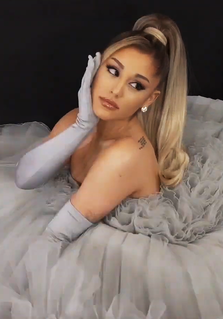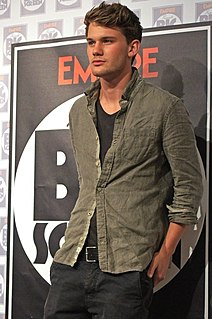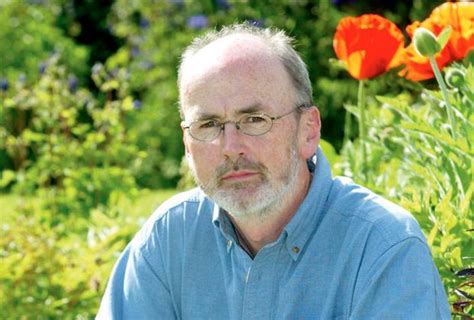A Quote by Edan Lepucki
I am glad it's [California novel] resonated with people because, for me, most apocalyptic novels aren't scary, because they feel so very far off.
Related Quotes
For me George Bush is just as scary, if not more. Because he doesn't look like a scary guy, because he's shaved and he has a tie on. But he's a real fanatic - a fanatic by definition is the one who says, if you are not with me, you are against me, and that's exactly the position he takes. The mullahs in my country, it's obvious. But a guy who says I am the president of the biggest secular democracy in the world and asks people to read the Bible and make crusades and says he's God's best friend - this guy is even more scary because you don't see it at the beginning.
Novels are political not because writers carry party cards -- some do, I do not -- but because good fiction is about identifying with and understanding people who are not necessarily like us. By nature all good novels are political because identifying with the other is political. At the heart of the 'art of the novel' lies the human capacity to see the world through others' eyes. Compassion is the greatest strength of the novelist.
With a horror movie most of the actual jumps and scares are made in the edit. It's often not very scary on set and then you watch the film and suddenly it's very scary because the way the jump scares fit together building up the suspense in the audience because it's making them jump when they're least expecting it.
I've been thinking a lot about why it was so important to me to do The Idiot as a novel, and not a memoir. One reason is the great love of novels that I keep droning on about. I've always loved reading novels. I've wanted to write novels since I was little. I started my first novel when I was seven.I don't have the same connection to memoir or nonfiction or essays. Writing nonfiction makes me feel a little bit as if I'm producing a product I don't consume - it's a really alienating feeling.
I am a quiet man. I tend to think things through and try not to say too much. But here I am, saying perhaps too much. But there are these feelings inside me which need badly to escape, I guess. And this makes me feel relieved because one of my big concerns these past few years is that I've been losing my ability to feel things with the same intensity- the way I felt when I was younger. It's scary- to feel your emotions floating away and just not caring. I guess what's really scary is not caring about the loss.
Because I think of novels as collaborative enterprises between the writer and the reader, all of my novels so far have ending with endings that maybe point in more than one direction, and that seems important to me because it seems important to me that after you've invested twenty or thirty hours of your imaginative life into this narrative that you have some stake in how it ends.
Some people make you feel better about living. Some people you meet and you feel this little lift in your heart, this 'Ah', because there's something in them that's brighter or lighter, something beautiful or better than you, and here's the magic: instead of feeling worse, instead of feeling 'why am I so ordinary?', you feel just the opposite, you feel glad. In a weird way you feel better, because before this you hadn't realised or you'd forgotten human beings could shine so.
The difference does not lie in the things that news does that novels do not do, but in the things that novels do that news cannot do. In other words, this basic technique of news - just one among many - is something a novel can use, but a novel can deploy a multitude of other techniques also. Novels are not bound by the rules of reportage. Far from it. They're predicated on delivering experience.
Now you mustn't think that I don't have any ideas for novels in my head. I've got ideas for ten novels in my head. But with every idea I have, I already foresee the wrong novels I would write, because I also have critical ideas in my head; I've got a full theory of the perfect novel, and that's what stumps me.
It's very bad to write a novel by act of will. I can do a book of nonfiction work that way - just sign the contract and do the book because, provided the topic has some meaning for me, I know I can do it. But a novel is different. A novel is more like falling in love. You don't say, 'I'm going to fall in love next Tuesday, I'm going to begin my novel.' The novel has to come to you. It has to feel just like love.
Creating the characters is the most creative part of the novel except for the language itself. There I am, sitting in front of my computer in right-brain mode, typing the things that come to mind - which become the seeds of plot. It's scary, though, because I always wonder: Is it going to be there this time?







































